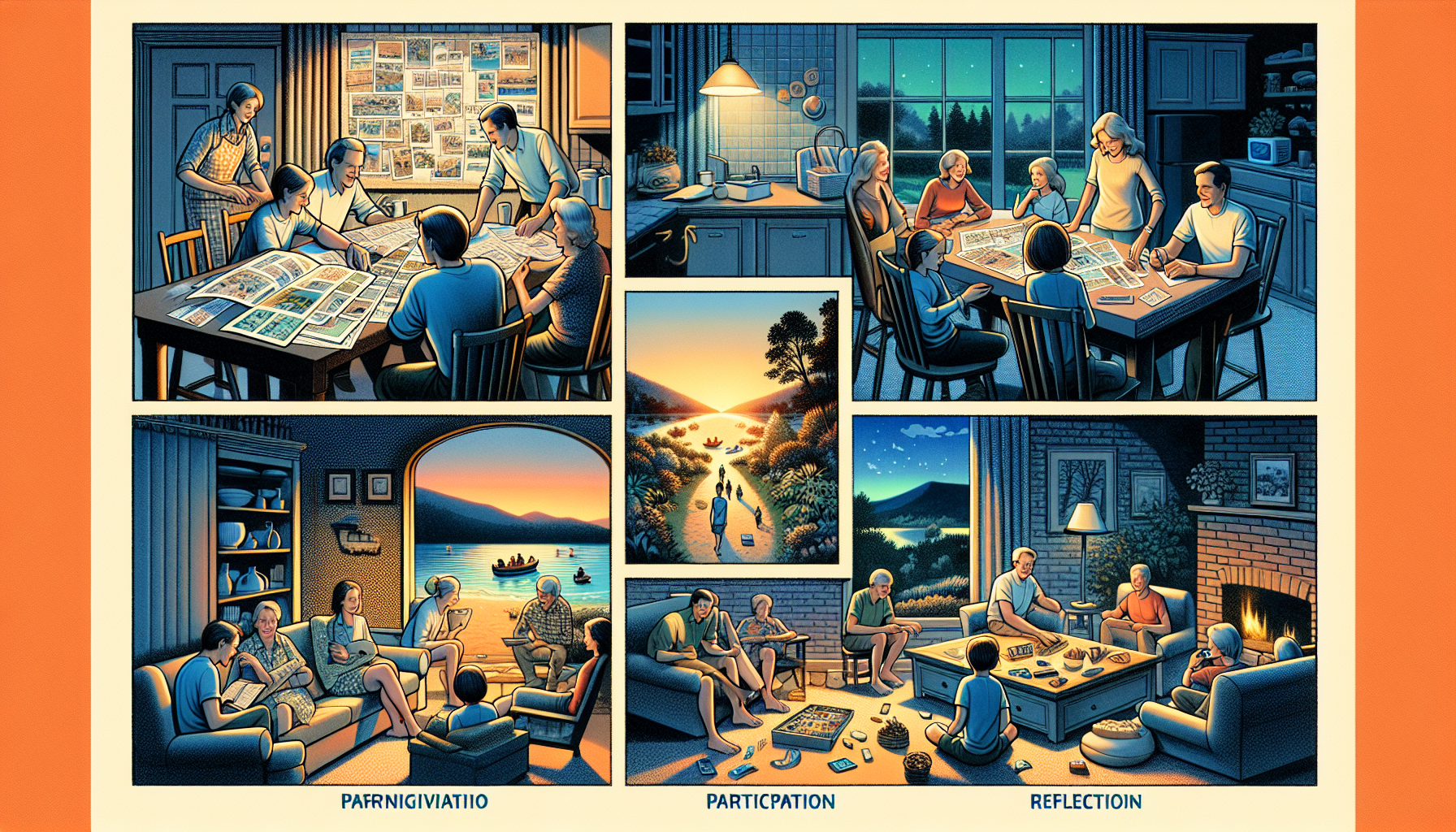Fostering a Love of Reading in Early Childhood is a pivotal journey towards shaping young minds for a lifetime of learning and exploration. This course dives deep into the strategies and practices essential for cultivating an enduring passion for reading among children. From creating stimulating reading environments and engaging in interactive reading activities to the crucial role of parents and caregivers, this course covers all the bases, offering creative insights and practical advice to seamlessly blend the joy of reading into children’s daily lives. Prepare to embark on an enlightening path that not only enhances reading skills but also nurtures imagination, curiosity, and a love for storytelling.
Lesson 1

Creating a Stimulating Reading Environment
Instilling a love for reading in early childhood sets the stage for lifelong learning and development. A stimulating reading environment not only nurtures this love for reading but also enhances cognitive growth and creativity.
Understanding the Role of the Environment
The ambiance where a child reads plays a crucial role in how they perceive reading. A warm, inviting space can transform reading from a task to a delightful adventure. Therefore, making reading an enjoyable and comfortable experience is key.
Setting Up a Child-Friendly Reading Nook
Creating a reading nook is not just about setting aside a corner; it’s about making a sanctuary for stories to come alive. Essentials for a reading nook include comfortable seating, adequate lighting, and easy access to books. Additionally, personalizing the nook with the child’s artworks or favourite characters can make the space more inviting.
Ensuring Accessibility to a Diverse Range of Books
Having access to a variety of books is like opening a treasure chest of knowledge and imagination for a child. Diversity in book selection exposes children to different cultures, ideas, and genres, making reading a gateway to the world.
Interactive Activities
Engagement in the reading process can be heightened through interactive activities such as:
- Designing a reading corner together
- Making bookmarks
- Creating a family book club
Designing a Reading Corner Layout
Designing the layout together with your child not only gives them a sense of ownership but also an opportunity for creativity. It encourages them to take pride in their reading space.
| Item | Description |
|---|---|
| Comfortable seating | A bean bag, cushion, or small armchair |
| Lighting | Soft, warm lighting to protect little eyes |
| Book Storage | Low shelves or baskets for easy access |
| Personal Touches | Their own artwork, favorite colors, and themes |
Ensuring your reading environment is inviting, comfortable, and stocked with a diverse range of books not only fosters a love for reading but lays the foundation for a lifetime of learning. Remember, the goal is to make reading a joyful, daily part of life for your child, sparking curiosity and imagination that lasts well beyond childhood.
Lesson 2

Engaging Reading Activities and Games
When it comes to cultivating a love for reading in early childhood, engaging reading activities and games play a pivotal role. These fun-filled approaches not only make reading an enjoyable activity but also significantly contribute to a child’s cognitive and linguistic development.
Innovative Strategies to Make Reading Fun
Making reading an exciting adventure requires creativity and thought. Incorporating games and activities that resonate with your child can transform reading from a mundane task to an eagerly anticipated part of their day.
Hands-on Activities for Enhanced Engagement
Interactive reading activities are a fantastic way to captivate children’s attention and ignite their imagination. Here are a few activities to get started:
- Story bags filled with objects related to a story
- Picture walks through a book before reading
- Role-playing with characters from their favorite books
Incorporating Storytelling and Read-Aloud Sessions
Storytelling and read-aloud sessions are time-tested methods to foster a love for reading. These sessions allow children to immerse themselves in stories, expanding their understanding and empathy.
Crafting a Simple Story Bag
A story bag is a delightful tool to enhance reading sessions. Fill a bag with items related to a story your child loves, allowing them to physically interact with elements of the tale as you read together.
Conducting a Mini Read-Aloud Session
Read-aloud sessions should be interactive and dynamic. Use different voices for characters and encourage your child to guess what might happen next, making the experience truly engaging.
By incorporating engaging reading activities and games, you not only make reading an enjoyable experience for your child but also lay the groundwork for a lifelong love for books. Remember, the key is to keep reading fun, interactive, and full of discovery.
Lesson 3

The Role of Parents and Caregivers in Fostering Reading Habits
The involvement of parents and caregivers in the development of reading habits in early childhood cannot be overstressed. Their role is pivotal in creating an enriching environment that fosters a love for reading, laying the foundation for lifelong learning and curiosity.
Supporting Reading Development Effectively
Parents and caregivers are the primary influencers in a child’s early learning stage. Their engagement in reading activities is crucial for modeling positive reading behaviors and for instilling a love for books in their children.
Building a Reading Routine
Establishing a consistent reading routine can significantly enhance a child’s affinity for reading. This routine could include designated reading times, which could be before bedtime or after lunch, ensuring reading becomes a daily habit.
Tips for Encouraging Curiosity and Engagement During Reading
- Ask open-ended questions about the story to stimulate thinking and conversation.
- Choose books with vibrant illustrations to discuss and explore together.
- Encourage children to predict story outcomes, fostering engagement and anticipation.
Role-playing Typical Reading Scenarios
Engaging in role-play reading scenarios can make reading sessions more interactive and exciting. By adopting the roles of different characters, children can deepen their understanding and empathy, enriching their reading experience.
Parents and caregivers play an irreplaceable role in nurturing reading habits. By making reading an integral part of daily routines, providing constant encouragement, and engaging in interactive reading sessions, they can significantly impact their children’s reading skills and love for reading. Remember, fostering a love for reading in early childhood paves the way for a lifetime of learning and discovery.
Fostering a Love of Reading in Early Childhood has been our focus, and as we wrap up this course, it’s evident that creating a rich, engaging, and supportive reading environment is instrumental in guiding young learners towards a lifelong journey of discovery and pleasure in reading. Through the development of stimulating reading nooks, interactive reading activities, and the indispensable support of parents and caregivers, we can unlock endless possibilities for children’s growth and imagination. As a final step to solidify your understanding of the concepts covered, a 10-question quiz awaits below to test your knowledge and ensure you’re fully equipped to nurture the seeds of reading love in the fertile minds of early learners.
Test Your Knowledge With this short Quiz
Click here to copy your score to share on facebook!







